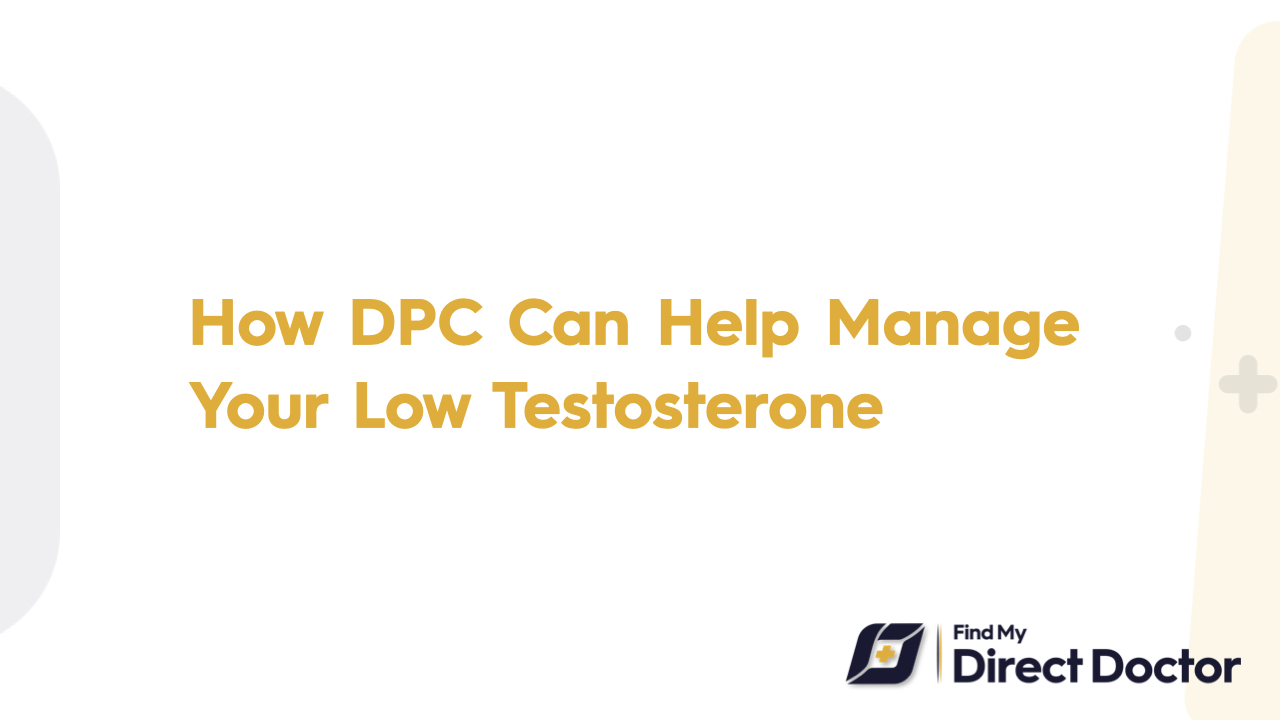



When the body does not create enough testosterone, the hormone that is responsible for many vital activities in both men and women, low testosterone, also known as hypogonadism, results. Although testosterone is more frequently linked to men, women's health is significantly impacted by it. Testosterone is essential for males to maintain their sexual desire, mood, bone density, and muscle mass. A person's general health and well-being may be impacted when their testosterone levels decline.

Low testosterone can cause a variety of symptoms, but weariness, decreased libido, erectile dysfunction, and a loss of muscular mass and strength are common ones. Additionally, people may experience mood swings like melancholy, impatience, and trouble focusing. Furthermore, osteoporosis or a reduction in bone density may be exacerbated by low testosterone levels. Though it can also be brought on by accident, certain drugs, or underlying medical conditions, this condition usually becomes more prevalent in males as they age. The quality of life can be enhanced and additional health issues can be avoided with early symptom detection and treatment.
Direct Primary Care (DPC), which offers individualized treatment and ongoing monitoring, can be a great help in treating low testosterone. Because DPC allows patients to have more access to their healthcare professionals, low testosterone symptoms can be treated more quickly. DPC enables quicker diagnosis and treatment because patients don't have to wait weeks to visit a doctor. For people who suffer from the annoying and frequently disruptive symptoms of low testosterone, this is very beneficial.
In order to ascertain if low testosterone levels are caused by age, an underlying medical condition, or lifestyle choices, DPC practitioners collaborate closely with their patients. To precisely assess hormone levels and choose the best course of treatment, they can do blood testing. DPC doctors can prescribe lifestyle modifications including exercise, diet, and stress management to help naturally raise testosterone levels in addition to giving testosterone replacement therapy or other drugs when needed.
Direct Primary Care offers significant advantages to those with low testosterone. Patients can see their healthcare providers more frequently and directly because of DPC. Better monitoring and quicker treatment plan modifications are made possible by this continuous communication. Having a committed doctor guarantees that patients are never left without help, whether that support takes the form of modifying a drug schedule or suggesting lifestyle modifications.
Furthermore, DPC's focus on preventive treatment aids in addressing the underlying causes of low testosterone as opposed to only treating its symptoms. Given that low testosterone can be caused by a number of variables, including stress, nutrition, and obesity, DPC doctors adopt a comprehensive approach and provide tailored recommendations that may result in long-term health benefits. DPC promotes hormone balance and general wellness by concentrating on each patient's unique needs.
The treatment of low testosterone in Direct Primary Care is customized to meet the specific requirements of each patient. Treatment can be modified over time to attain the optimum results since DPC enables close, continuous relationships with doctors. Frequent follow-up appointments guarantee that testosterone levels are appropriately tracked, allowing for any necessary modifications to prescription or lifestyle advice.
In order to treat any underlying issues that might be influencing testosterone levels, personalized management may also entail consulting with additional medical specialists as needed. In order to deliver individualized treatment programs that emphasize not only hormone replacement but also general wellbeing, DPC providers take the time to fully comprehend each patient's medical history, preferences, and objectives. This method guarantees that patients receive all-encompassing care that promotes their emotional and physical well-being.
Previous Post